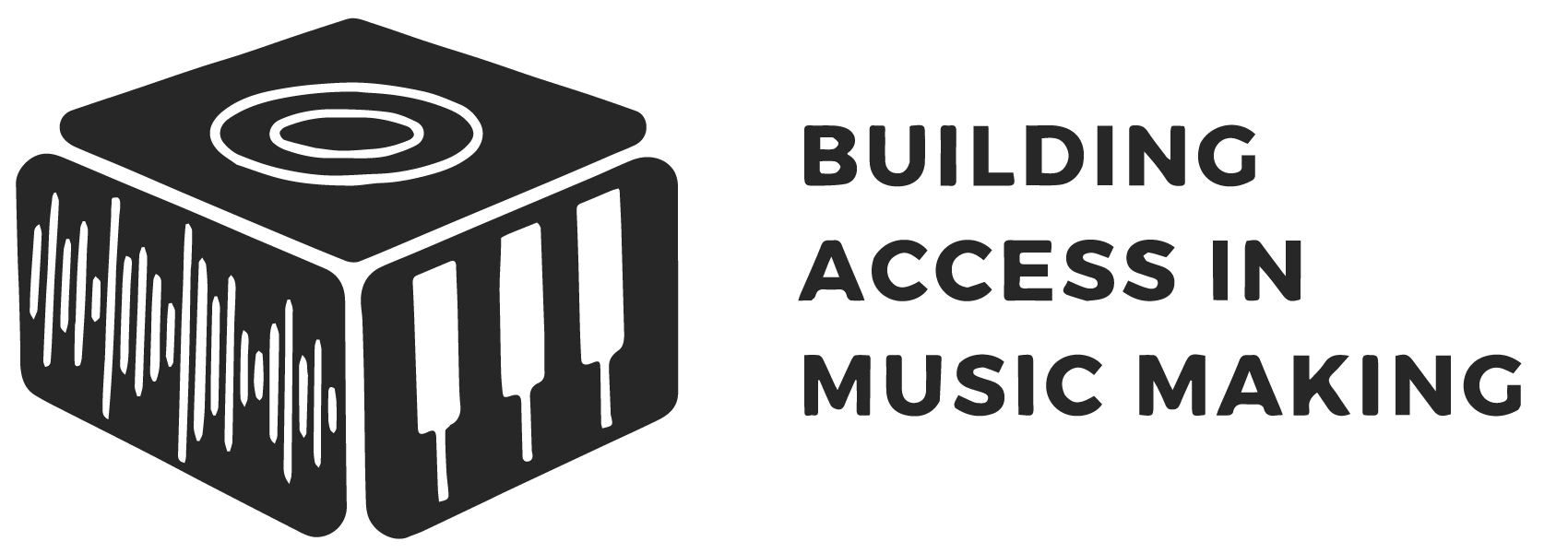About
BAMM is a Canadian-based international research network that brings together not-for-profit organizations alongside academics who work across the disciplines of music, education, technology, and disability studies to increase and improve access to music making by following a disability-led approach.
What we do
At present, there is a patchwork of opportunities for people with disabilities to participate in music making, and there is a need to extend these opportunities to include more people in Canada and internationally. By bringing together the expertise and experience of the participating not-for-profits and a large transdisciplinary team of academics, BAMM is the first international network of its kind to be devoted to a comprehensive approach to accessibility in music making.
BAMM will be mutually beneficial for all involved, including the not-for-profit organizations, academic members, and the communities they collectively serve.
- The not-for-profit organizations will benefit by growing and strengthening their respective artist networks, connecting and collaborating with other not-for-profits regionally and internationally, and expanding their music programming offerings.
- The academics will benefit by engaging in research and research-creation with the not-for-profits, establishing new academic and community partnerships, creating training opportunities for students, and developing transdisciplinary and arts-based approaches for improving and increasing access to music making.
These mutual benefits stem from a commitment to fostering performance arts practices that are both community-based and community-led. By banding together in this partnership, the not-for-profit and academic members will interconnect their networks and thereby create new pathways for long-term research collaborations and expand their collective reach.
The academic team will provide the not-for-profits with expertise to research their accessibility practices related to music making; assess, reflect, and improve upon them; and share their knowledge within and beyond the network.
This partnership will have an international impact on disability communities and establish BAMM as a leader in this area by producing and sharing new knowledge for community, practitioner, and academic audiences as outlined in the Knowledge Mobilization Plan.
These outcomes are made possible by subscribing to the interdependent, transdisciplinary, and community-driven approach espoused by BAMM.
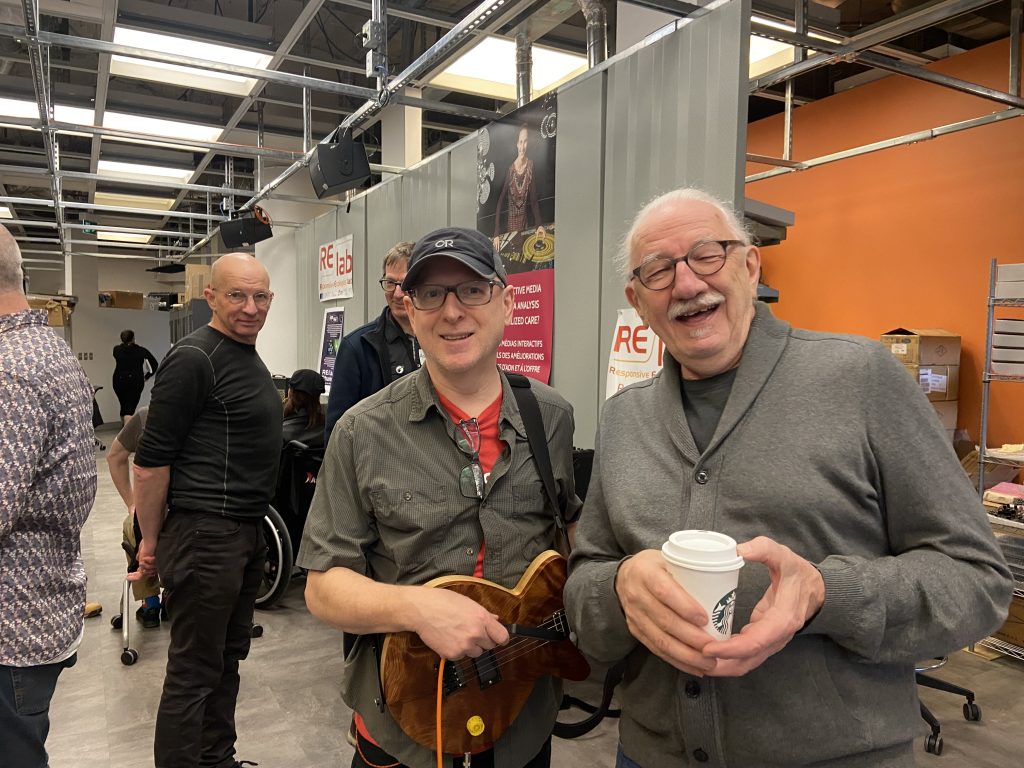
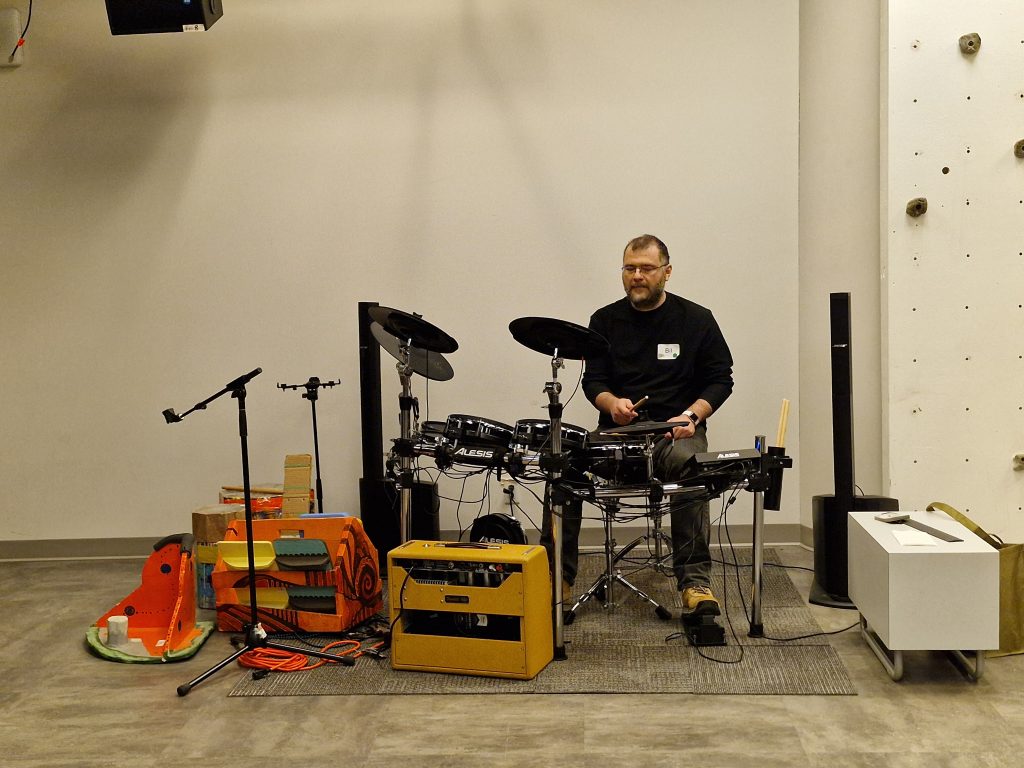
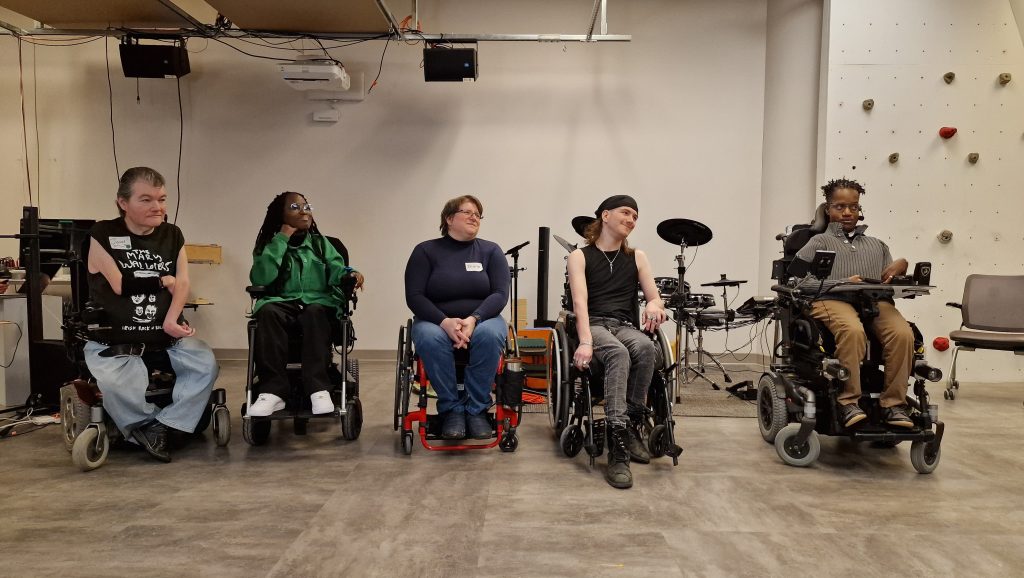
Our objectives
Extend the Reach of Existing Networks
Extend the Reach of Existing Networks
The original locations of the Canadian Accessible Musical Instruments Network include Vancouver, Calgary, Toronto, and Montreal. BAMM will add new Canadian nodes in Victoria, Edmonton, Lethbridge, London, Kingston, Ottawa, and Halifax. New international nodes will be added in Australia, Brazil, Finland, Germany, the Netherlands, South Africa, United Kingdom, and the United States.
This expansion of partners includes the addition of 10 new not-for-profit organizations. In total, the Building Access in Music Making network includes 63 people (43 academic; 20 non-academic) representing 15 not-for-profit organizations and 20 universities, 12 not-for-profit partners, and 12 academic partners.
Expand the Capacity of Existing Networks
Expand the Capacity of Existing Networks
BAMM will continue the current research of its partners’ existing networks and add new areas of research with the aim of developing a comprehensive approach to increasing and improving the accessibility of music making.
a. Designing Music Instruments. The Canadian Accessible Musical Instruments Network designs accessible instruments for making music following a disability-led approach. This research will continue in its current locations and commence in the new BAMM locations.
b. Making Music. BAMM will support a diverse range of activities in which participants will engage in music making. These in-person and remote activities will be designed to support people with a broad range of access needs, musical experiences, and musical interests. BAMM’s proposed activities include: (a) music and dance performances, (b) recording and songwriting sessions, (c) artist commissions and residencies, and (d) informal meetups for music making.
c. Learning Music. BAMM will leverage its expertise in music education and disability to support several music learning initiatives. These activities will include: (a) piloting new music programs in collaboration with community partners, (b) developing new pedagogical approaches for learning how to play instruments and sing, (c) creating open-access resources for teachers on how to implement these pedagogical approaches, (d) leading professional development sessions for teachers to learn about these resources and practice using them, and (e) designing and implementing a new certificate program rooted in accessibility practices in the Chang School of Continuing Education at Toronto Metropolitan University to train community music educators.
Mentor Communities to Collaborate and Build Collective Capacity
Mentor Communities to Collaborate and Build Collective Capacity
With the aim of realizing a sustainable network that thrives beyond the lifespan of the grant, BAMM will support new national and international collaborations. BAMM members will build capacity within the network by sharing their experiences and knowledge to help each other improve their practices related to designing music instruments, making music, and learning music in their local nodes.
Support Meaningful Training Opportunities for Community Members, Graduate Students, Postdocs, and Emerging Scholars
Support Meaningful Training Opportunities for Community Members, Graduate Students, Postdocs, and Emerging Scholars
BAMM prioritizes collaborative, co-created, and community-based scholarship, and this model necessitates meaningful training opportunities for non-academic and academic members. Acknowledging the history of ableism in academic institutions (Dolmage, 2017; Price, 2024) and the systemic underemployment of people with disabilities in Canada (Statistics Canada, 2023), BAMM’s budget allocates funding for all participating Canadian not-for-profit partners to ensure just compensation for the expertise and time they contribute to the network. In tandem, BAMM will prioritize supporting undergraduate and graduate students, postdocs, and emerging scholars who participate in the project by dedicating resources to their respective roles including field placements to make community and industry connections, research assistantships, mentorship, co-authoring and co-creating opportunities, and funding knowledge mobilization activities.
Our Governance Model
BAMM has a non-hierarchical governance structure. To ensure community perspectives are included in decision making, each local node pairs academic and non-academic members to work collaboratively toward supporting community aims.
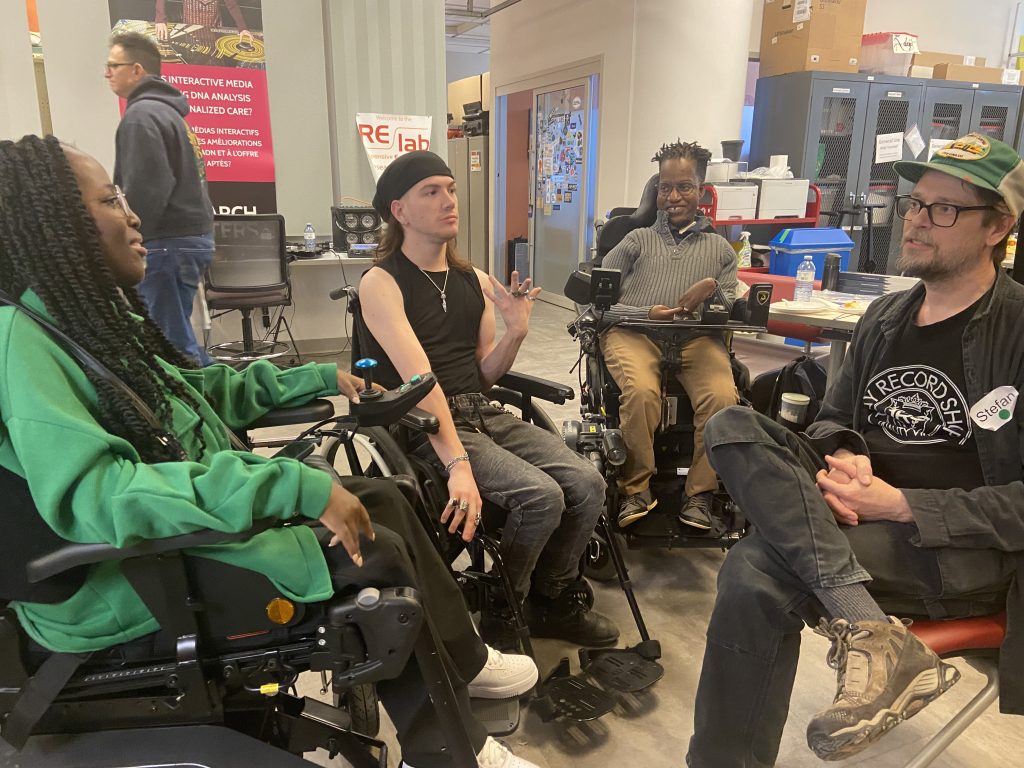
- The project director, working alongside the project manager, will distribute the network’s finances to each node to support their activities.
- To facilitate communication and collaborations across geographical locations and areas of research, additional academic-community duos or trios will serve as point people for making music (Dazé & Waterman), learning music (González Ben, Hamilton, & Tshuma), and designing music instruments (Baljko, Bobier, & Nolan).
- An advisory group with a representative from each disability organization will be facilitated by Gift Tshuma (Blurring the Boundaries Arts) to assess the project’s progress from a community perspective.
- The project director and Tshuma will meet regularly to discuss community feedback and how to implement it into practice. Conflicts will be addressed through consultations with a focus on consensus-based resolution.
